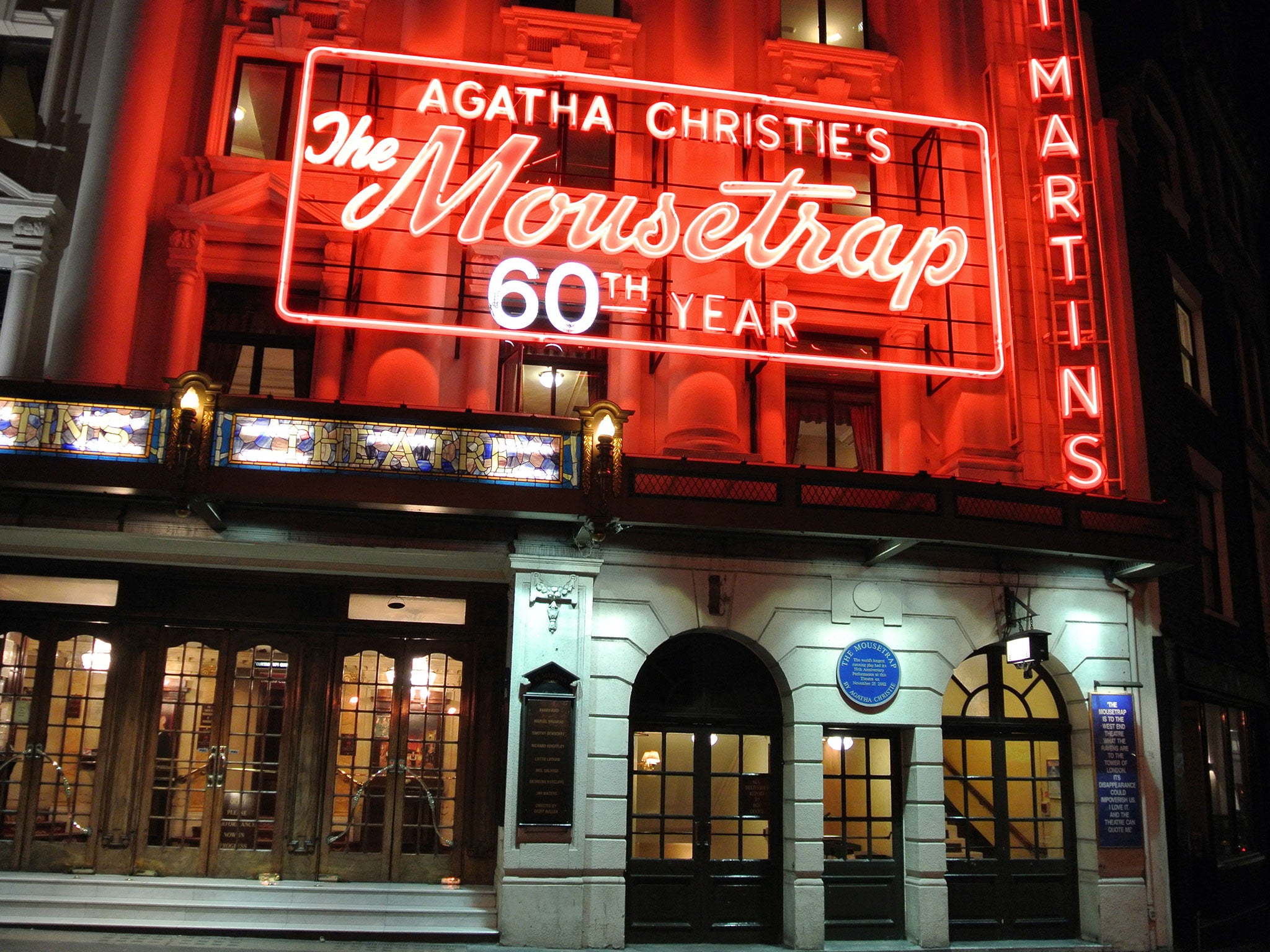Eleven major theatres pledge to boost female roles, directors and playwrights

Your support helps us to tell the story
From reproductive rights to climate change to Big Tech, The Independent is on the ground when the story is developing. Whether it's investigating the financials of Elon Musk's pro-Trump PAC or producing our latest documentary, 'The A Word', which shines a light on the American women fighting for reproductive rights, we know how important it is to parse out the facts from the messaging.
At such a critical moment in US history, we need reporters on the ground. Your donation allows us to keep sending journalists to speak to both sides of the story.
The Independent is trusted by Americans across the entire political spectrum. And unlike many other quality news outlets, we choose not to lock Americans out of our reporting and analysis with paywalls. We believe quality journalism should be available to everyone, paid for by those who can afford it.
Your support makes all the difference.Critics highlighting inequality in the theatre have pointed out that only one play written by a woman will be staged in the West End this week: The Mousetrap by Agatha Christie.
Yet a group of leading British theatre companies has come together for to tackle the issue of inequality with “industry-wide change” and reverse the trend “preventing talented women from rising to the top”.
Senior figures from organisations including the Royal Shakespeare Company, the Young Vic, and West Yorkshire Playhouse committed to a list of pledges to help promote female actors, writers and directors.
The news was announced at an event organised by the Tonic Theatre, which was set up in 2011 to advise theatre on improving gender equality at the Royal Central School of Speech and Drama today.
Sheffield Theatres, which comprises the Crucible, the Lyceum and the Studio, has pledged to use the same number of male and female actors in its in-house productions within the year.
Artistic director Daniel Evans said it was “not just about numbers, but also about the scope and range of parts that female actors get to play across the year”.
The Almeida said it would commission an equal number of male and female playwrights and would raise the question of parts for women with playwrights. The Chichester Festival Theatre also plans to commission more women writers.
This follows the Advance programme, which was created by Tonic and asked senior figures at the 11 companies to investigate the causes behind the comparative lack of women in senior creative roles and draw up concrete plans to change their own organisations as well as for wider industry change.
Tonic’s director Lucy Kerbel said she was optimistic the programme “will lead to real and sustained change, not just within these theatres but because of their position in the industry, far more broadly”.
Actresses including Janet Suzman, Stella Duffy and Samantha Bond have highlighted the issue of a lack of parts for women, especially older women, for years, yet the statistics continue to show an imbalance.
Of the 179 theatres and theatre companies that are funded by the Arts Council England, just 37 per cent of the artistic directors are women.
Tonic Theatre took a poll of the female creative presence on productions performed on a Saturday earlier this month.
Of the performances at the 20 most heavily subsidised theatres in the UK, women made up 38 per cent of the directors and 37 per cent of the performances. Only eight per cent of the writers were female. The situation was worse in the commercial West End with 29 per cent women directors and 29 per cent performers.
Erica Whyman, deputy artistic director of the RSC, said there was an “urgent need to understand why there are still gender imbalances in the theatre”. She added research undertaken by Tonic would be an “effective and multi-disciplinary call to action”.
The RSC has drawn up a list of plans to develop and empower young directors, while the Young Vic is to organise mentoring and establish a peer-to-peer network.
Other plans include rural theatre group Pentabus, which is planning a pregnancy pack for actors and organisations to become a “brilliant employer for pregnant actors”. The Gate is to develop a scheme for female lighting and sound technicians. The other companies committed to greater gender equality are Headlong, the Tricycle and the English Touring Theatre
Rising stars
Carrie Cracknell – Theatre director who met huge acclaim for her recent production of Medea at the National Theatre. She is an associate director of the Royal Court Theatre.
Cush Jumbo – Writer and performer, 28, who has a string of credits to her name. Her acclaimed show Josephine and I won her an emerging talent award at the Evening Standard Theatre Award last year.
Lucy Kirkwood – 30 this year, Kirkwood has written a series of acclaimed plays including NSFW, culminating in Chimerica, which picked up a string of Olivier awards
Lucy Prebble - Won an award for a short play while still at university. She went on to write Enron which transferred to the West End and New York and followed it up with The Effect.
Laura Wade - 36-year-old playwright who has written plays for the Royal Court Theatre and Hampstead Theatre. Her play Posh transferred to the West End and is now in cinemas as The Riot Club.
Join our commenting forum
Join thought-provoking conversations, follow other Independent readers and see their replies
Comments